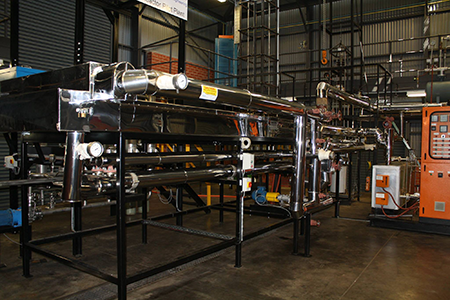Chemical engineers at the North-West University (NWU), together with experts in the industry, just released a first-in-the-world reactor that will hold great benefits for industries and the man on the street.
Prof Sanette Marx, who heads the research chair in biofuel for the National Research Foundation (NRF), says that the NRF provided funding of about R5,2 million for their research to develop a reactor that will reduce greenhouse gases and considerably promote renewable energy initiatives. After nine years’ intensive research by two PhD studies, six master’s degree studies and nine final-year chemical engineering projects, specialist equipment was at last acquired to build a successful reactor.
Prof Marx says that any form of biomass, like discard coal in this case, is fed to the reactor, which then converts it to bio coal, bio oil and gas through chemical liquefaction methods. “These products are much more environment friendly than the traditional products. The bio coal is then mixed further with discard coal, and new-generation briquettes are the end product. As a result of this process, these briquettes are three times more effective than the coal that Eskom for example currently uses.
Although this reactor will be used only for research purposes at first, Prof Marx says that they can already confirm that this technology is at the forefront of chemical liquefaction research in the world, and paves the way for commercial interest. “Experts from across the globe wanted to find out exactly how our reactor will work. Two similar reactors have already been built, but because of technical errors they are not yet in operation.”
It is well known that solar and wind power can be used to generate electricity, but a carbon source is required to produce liquid fuels and chemicals. Prof Marx wants to prove with their research that biofuel holds even greater benefits than traditional coal combustion. “Atmospheric air will be cleaner, fewer harmful chemicals will be released, our coal reserves will last longer and in the long term it will be a cheaper way to generate electricity,” she says.
The reactor was designed and developed at the direction of Heat and Mass Transfer Technology, a Johannesburg engineering company owned by two former students, Christo van der Heever and Pieter van Staden.

A first-in-the-world reactor from the North-West University (NWU).
